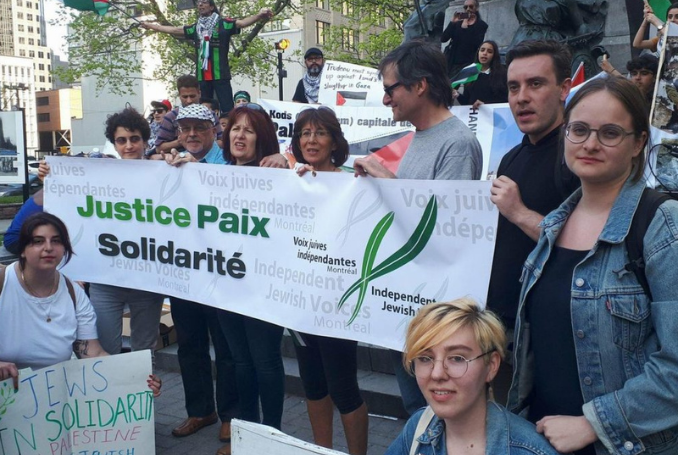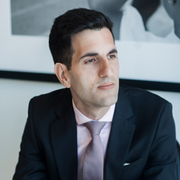
Recently the Ontario provincial government announced a formal partnership with two Canadian advocacy groups, Friends of Simon Wiesenthal Center for Holocaust Studies and Centre for Israel and Jewish Affairs (CIJA), both of which are strong supporters of the Israeli state. According to the announcement, the government is awarding the groups approximately $300K, divided as follows:
“$148,000 to the Friends of Simon Wiesenthal Center for Holocaust Studies to create a collection of bilingual classroom resources and programming that will introduce students to the topic of antisemitism and ways to recognize and address antisemitism….
$150,000 to the Centre for Israel and Jewish Affairs (CIJA) to develop bilingual classroom resources, targeted at students in grades 5-8, on the dangers of antisemitism.”
While on the surface the partnership is laudable, both groups involved are proactive in vilifying Palestinian voices that speak out against the illegal occupation of Palestine, often smearing those who do as “antisemitic.” But one needs to ask what is hateful about protesting what Michael Lynk, Special Rapporteur on the situation of human rights in the Palestinian territories occupied since 1967, observes:
“More than 680,000 Israeli settlers living in segregated and privileged settlements amid 5 million stateless Palestinians; asymmetrical wars; geographic fragmentation; a smothered and heavily aid-dependent economy; separate networks of roads and utilities; impoverished and fenced-in ghettos unique in the modern world; a coercive environment; the growing amount of violence required to maintain the occupation; the denial of self-determination; the deeply lopsided access to property and to social, health and employment rights.”
That’s why Palestinian voices are protesting, manifesting a righteous spirit that is intolerant of injustice. Those who push back against this must be met with suspicion, especially when they so baselessly imply that the same spirit is hateful of Jewish people. This only detracts from the atrocities of the Israeli state. Who does such dishonesty, morally and politically, benefit?
Students should not feel intimidated or discouraged from talking about the illegal occupation of Palestine. It represents both egregious human rights violations, perpetrated by the Israeli state, as well as a continued failure on the part of the international community, including the Canadian federal government, to adequately pressure the state to end the occupation.
A good education involves learning about the world in its totality. By the same token, it does not shy from talking about the occupation. Instead, it may very well involve students—as global citizens—discussing why the occupation is happening and what—through peace and cooperation—needs to be done for it to finally disappear. Contrary to what some proponents of the state argue, this does not mean eradicating Israel. In fact, merely suggesting that is disingenuous. It incites animosity against defenders of Palestine, further compounding the oppression of those among them who are directly experiencing the occupation, while deflecting necessary attention away from the criminality of the state.
Indeed, we should not be silent where we recognize the subjugation of an entire people. Those who affect or endorse such silence ought to be held to task, questioned about what “values” they would like the rest of humanity to accept. No person of conscience should be bothered by the idea of dismantling of the occupation and acting to bring this about, such that fellow Israelis and Palestinians can actually live in harmony.
The advocacy groups fail to appreciate that the struggle for Palestinian justice, inspired by love, is one against hatred. In keeping with the anti-racism mandate of the Ontario government, against the same, this should be part of classroom discussion. Students thereby have the important opportunity to analyze and grasp the insidious nature of hatred, keeping the occupation alive. This empowers them to undertake constructive efforts aim at destroying it. The government should distance itself from any organizations that support the occupation. To do so is to endorse hatred.
The partnership risks creating a climate where students can, without fear, discuss the occupation. The advocacy groups have routinely attacked those, such as Toronto District School Board (TDSB) equity worker Javier Davila and Toronto-based activist Desmond Cole, who have so much as drawn attention to the brutality of the occupation. What will happen if students, during the delivery of the partnership’s curriculum, ask questions about it? Seek clarification as to why it is happening? What explanation will be offered and are Palestinians, as happens in much of the mainstream, going to be wrongfully blamed?
Antisemitism is a major human rights issue, which the advocacy groups appear to appreciate. There’s certainly much they have done publicly to raise awareness about and condemn it. However, the sincerity of that is immediately brought into question when they attack those who—through academic and creative work, protest, demonstration, etc.—criticize the Israeli state for its thoroughly documented crimes against humanity.
A person who genuinely cares for human rights, including of course against antisemitism, wants those rights to be enjoyed universally. One cannot be against antisemitism and those who speak out against the occupation at the same time. To be against antisemitism is to be against hatred, at the root of the occupation itself, and dissolving that hatred involves lifting the voices of those who speak against it. Silencing those voices only perpetuates hatred.
The Ontario government ought to revisit its decision to form the partnership. There are many other progressive Jewish organizations in Canada, notably Independent Jewish Voices Canada (IJV), that would be better suited to partner with the government to deliver curriculum on antisemitism. It’s not simply because such organizations are comprised of those knowledgeable about and committed to ending antisemitism but—true to any legitimate human rights organization—against all forms of hate. This has been demonstrated, among other things, by their unwavering solidarity with the Palestinian people. That kind of solidarity and teaching about the harm of antisemitism is what belongs in the classroom.
The government should also hold well-advertised and open public consultations. Not only is this democratic but it ensures the diversity of Jewish voices, throughout the province, are heard. Not all such voices endorse the Israeli state—be it as a colonial power or terroristic entity claiming the lives of innocent Palestinians. Instead, they, while risking unfairly being called “antisemitic” themselves, condemn it. That condemnation needs to be taken seriously by the Ontario government. It is more than outrage. It points to state-sanctioned evil that has no place on this planet, let alone the classroom.
Young people have the absolute right to learn that, whether the culprit is Israeli or another altogether. Those who seek to deny them that right have no legitimate place in schools. Education illuminates where evil exists and ultimately how it can be overcome.

– Paul Salvatori is a Toronto-based journalist, community worker and artist. Much of his work on Palestine involves public education, such as through his recently created interview series, “Palestine in Perspective” (The Dark Room Podcast), where he speaks with writers, scholars and activists. He contributed this article to The Palestine Chronicle.








